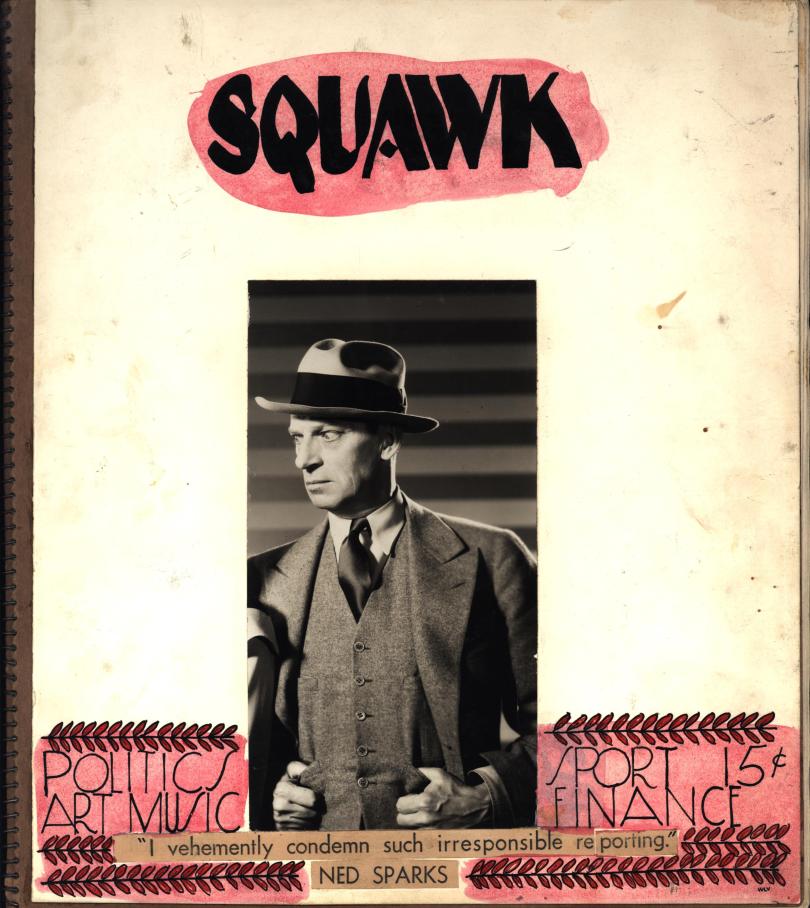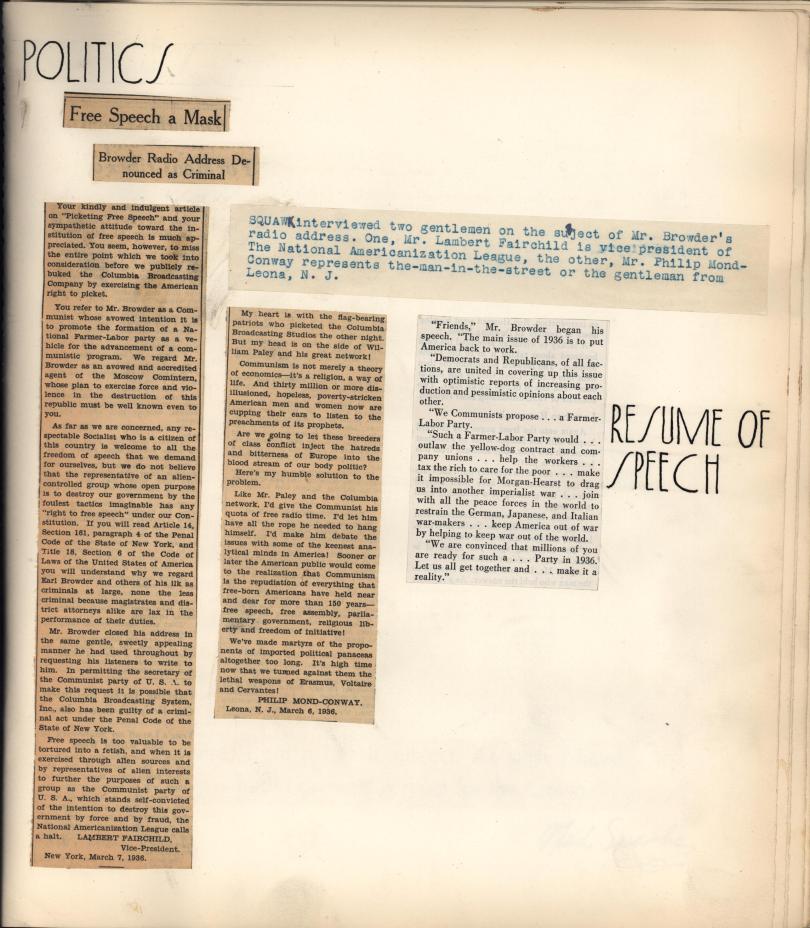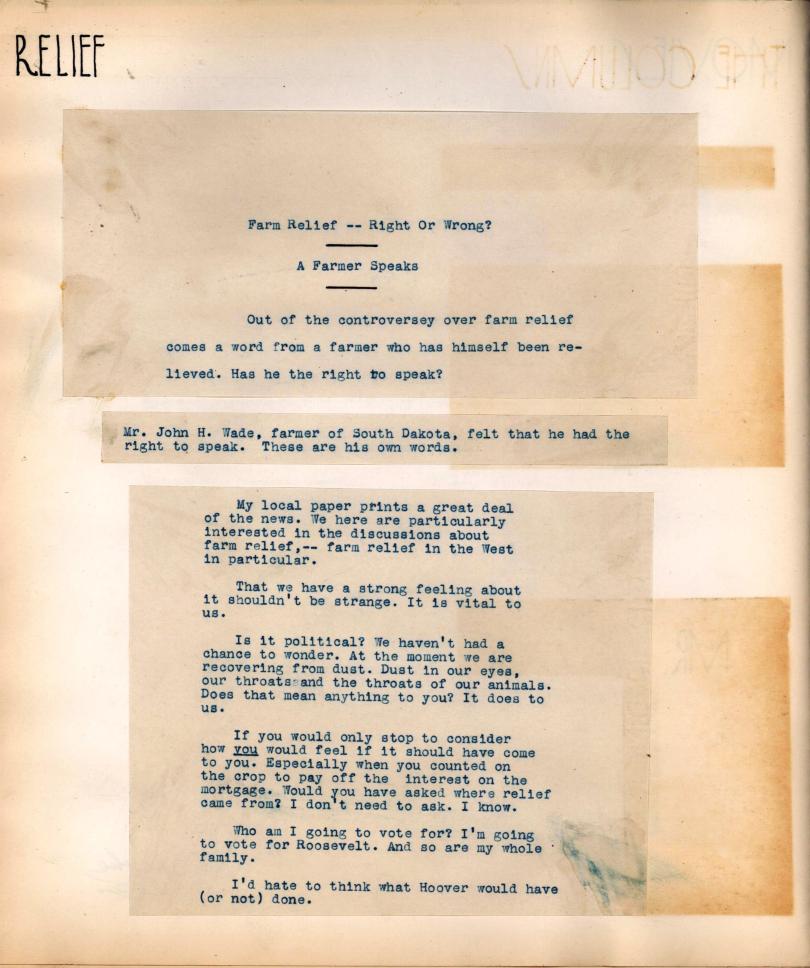SCROLL DOWN FOR IMAGES.
In his syndicated newspaper column of March 24, 1936, Walter Winchell wrote the following:
The other midnight Rudy Vallee was telling us about his forthcoming magazine, to be christened “Squawk.” The mag, he said, would be for the public which suffers from inaccuracies in newspapers and especially “the columns.” His mag, he added, will “tell the real story.”
There is no evidence that any issues of Squawk were ever published. The images below are from a mock-up of the first issue, which turned up in Rudy Vallee’s estate after his death in 1986, and which I purchased several years later from an Ebay dealer.
Winchell’s anecdote allows us to date the magazine, which itself contains no dates, no information on its publishers, no address of publication. Rudy Vallee launched Squawk with the collaboration of entertainment celebrities, as a vehicle through which they might respond to claims about their private lives published in the gossip columns of the 1930s. Squawk’s intended practice was to reprint or summarize a piece of published celebrity gossip, then offer the star a chance to respond. For example, one page repeats a Hollywood Reporter story claiming that Katherine Hepburn had splashed Ginger Rogers with a drink at a Hollywood nightclub. Below the summary, and in her own words, Katherine Hepburn responds, explaining that she and Ginger Rogers remain friends, and that she had merely, and accidentally, spilled a glass of water in Ginger Rogers’ presence.
Other Hollywood performers looking to set the record straight in Squawk are Gene Raymond and Ned Sparks.
The blank page was blank in the original mock-up.
Will Straw (2020)

















